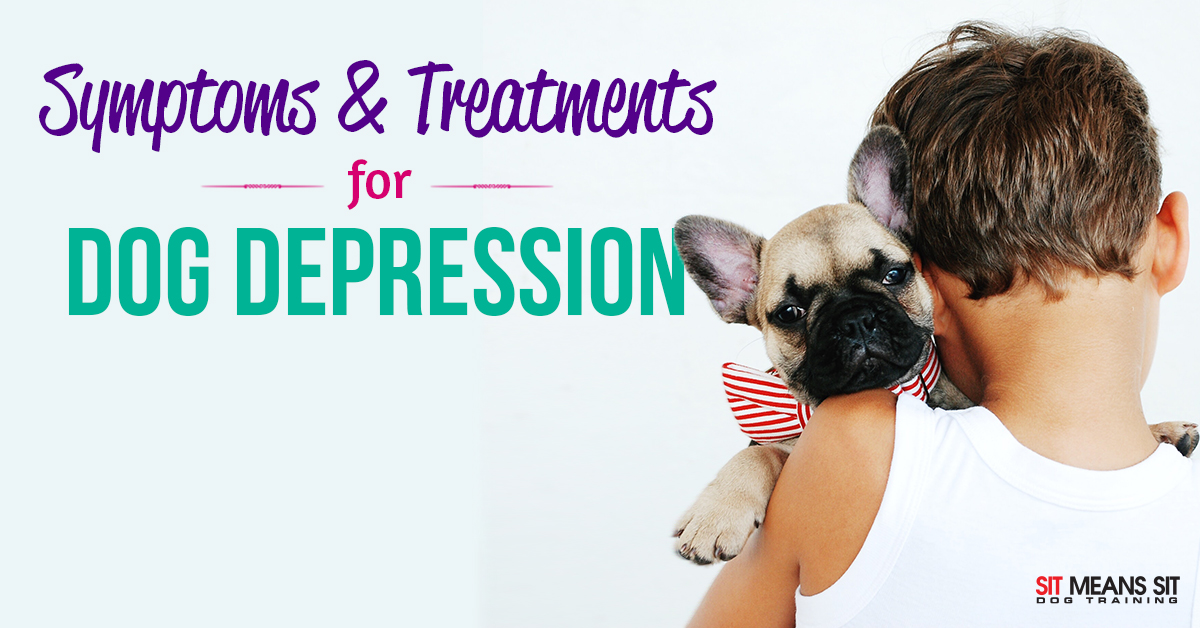
Is My Dog Depressed?
Maybe you’ve noticed that your once energetic pup now seems withdrawn and maybe even lethargic. Could your dog be experiencing depression? Let’s find out!
Are Canines Capable of Getting Depressed?
According to animal experts, your canine companion can indeed suffer from depression. However, veterinarians aren’t sure if dogs suffer from depression in the exact same ways that we do. Since we can’t ask our pup (well, you technically could, but even if you did get a response, it wouldn’t be a very helpful one), it’s hard to know for certain what they’re experiencing. But even with that is a barrier, the executive director of the American College of Veterinary Behaviorists, Bonnie Beaver, who is also a veterinary specialist in animal behavior, has said that it isn’t uncommon for pets (like dogs) to get down, especially during times of change. However, it’s important to mention that Beaver also said it is rare for a canine to suffer from long-term depressive episodes.
Symptoms of Depression in Dogs
Symptoms of dog depression tend to be very similar to that of humans. Common symptoms can include:
- Acting withdrawn
- Becoming inactive
- Change in eating and sleeping habits
- Uninterested in things they once enjoyed
Veterinarians, however, also warn that these could also be signs of other medical problems. For example, if your furry friend once loved long walks but now mopes around, they might be experiencing pain from arthritis. So, your first step should always be to schedule a full checkup with Fido’s veterinarian.
What Causes Dog Depression?
While there isn’t one reason that a dog might e experiencing depression, there are a couple of triggers of severe dog depression that seem to come up more than others. Here are the three most common causes:
- Major Change: significant changes in a dog’s life could lead to periods of depression. This could include moving to a new home, having a new partner or child in the home, or adding a new pet to your family. Even a simple change in Fido’s schedule could cause them to feel down for a bit.
- Loss of Companion Animal: losing a companion animal can be tough for a dog, especially if they’ve lived with the other animal most or all of their life. This sudden loss can cause your pooch to feel lonely and as if they’ve lost a friend – because they have.
- Loss of an Owner: it’s no surprise that losing an owner could cause a dog to experience depressive episodes. An owner isn’t only someone that a dog sees as apart of their pack but usually views them as the pack leader as well. Even their owner leaving for an extended period of time can cause them to go through periods of depression.
It’s also important to note that your pooch might not be depressed but just could be responding to the reactions of the other people in the home. If a pet or family member has passed and those in the house are grieving, your pup might not be getting the same amount of attention they’re used to, which could cause them to stress out.
Treating a Depressed Dog
Most canines will start to feel better naturally after a few months, sometimes even a few days, with the help of some extra love, care, and attention. The best thing you can do for your furry friend is to keep them engaged by doing more of the things that they enjoy, going outside with them more, bringing them to the dog park to socialize more, and giving them extra exercising opportunities through more walks or going to parks and nature trail. Additionally, when they show signs of happiness, be sure to recognize and praise them for it.
While dogs can experience depression, it’s usually not something to be overly concerned about – but when in doubt, it’s always safest to contact their vet. Plus, don’t forget that the common signs of depression in dogs could also be signs of other underlying health issues, so if you think Fido might be depressed, take them in for a check-up just to make sure something else isn’t bugging them.
